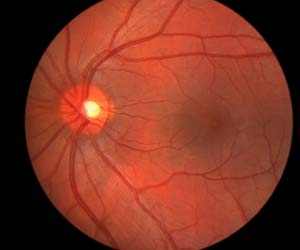Diabetic retinopathy can affect one out of every three patients with uncontrolled diabetes for 10-12 years.
- Uncontrolled diabetes can lead to diabetic retinopathy in almost one-third of patients with poor sugar control
- Moderate cases of diabetic retinopathy can be managed effectively with sugar control. However, severe cases might require laser surgery or therapy
What is Diabetic Retinopathy
Worldwide, there are around 95 million adults who have diabetic retinopathy. About 80% of them experience visual difficulties when they are working, reading, or driving. Diabetes not only causes diabetic retinopathy but also dry eyes and cataracts that develop early. According to the doctor, diabetic patients typically develop cataracts in their mid-fifties, roughly ten years earlier than people without diabetes.When the blood vessels in the retina are harmed because of excessive blood sugar levels in the body, it is known as diabetic retinopathy. Floaters, blurriness, blank or black patches in the field of vision, poor night vision, and trouble seeing colors are some early signs of the disease. While moderate cases can be managed effectively with diabetes management, severe cases necessitate laser surgery or therapy.
How Common is Diabetic Retinopathy
Dr. Saurabh Choudhry, CEO of ICARE Eye Hospital, Noida, said, “According to recent studies, 63% of Indians lack awareness that diabetes can damage eye health. In fact, 93% of diabetic patients in the country tend to visit an ophthalmologist only after they have started experiencing vision problems. But at that stage, the damage to the eye is significant and treatment becomes difficult. The eyes are a window to the body. Through regular eye check-ups, diabetes-induced changes in the eyes can be picked up early, even though the patient has no symptoms. A huge number of cases of diabetes get diagnosed due to a routine eye exam! It is recommended that all healthy people should undergo an eye exam once a year, and diabetic patients should see an eye doctor once every four months.”Eye Care Among Diabetic Patients
He added, “About 80% of patients of diabetic retinopathy face visual challenges while driving, reading, or working. Early detection, keeping good control of sugar levels and availability of laser procedures can allow diabetic patients to maintain good vision lifelong. Unfortunately, most patients in India, even though belonging to the affluent, educated class of society, do not undergo regular screening for either eye or diabetes, and reach us in advanced stages when treatment becomes a challenge. Regular eye screening and on-time treatment are mandatory for a diabetic patient to prevent complications of retinopathy.”Dr. Saurabh Choudhry said, “Most patients in India do not realize they have diabetes until or unless they need to go to a hospital due to some complication of the disease. Routine eye screening is not a priority in India, leading to many diabetic patients turning blind or landing up at hospitals for prolonged treatment, which is expensive for their families and not sustainable if they are from an underprivileged socio-economic background.”
Source-Medindia
















